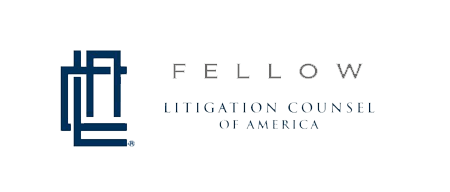A birth injury is physical harm a baby or mother incurs during pregnancy, labor, delivery, or the postnatal period. With every 1,000 births in the United States, six to eight babies suffer a birth injury. These injuries account for approximately 2% of neonatal deaths and stillbirths.
Hypoxic ischemic encephalopathy (HIE) is a serious birth injury when there is a dysfunction in a baby’s brain, restricting blood flow to the brain. This limited blood flow can have long-term effects and severe outcomes.
If you or your child suffer a birth injury, it can affect children for a lifetime, and you might have cause for a medical malpractice claim. A New Mexico birth injury attorney can determine if a claim should exist and walk you through the next steps in trying to secure a safe and healthy future for you and your baby.
An Overview of HIE
In some cases, infants that develop HIE may not encounter any health issues. In other cases, the effects can range from mild and moderate to severe. At its worst, HIE can create permanent disabilities, including:
- Cerebral palsy
- Cognitive impairment
- Developmental delay
- Epilepsy
The interference of blood flow starves the brain of its oxygen supply, thereby starving the whole body of oxygen. This lack of oxygen damages other organs, including:
- Heart
- Kidneys
- Liver
- Bowels
How long the brain goes without oxygen determines the amount of damage done. Typically, these organs will return to normal function. But the brain might not recover fully if an injury is sustained.
In typical cases of mild HIE, children survive without developing severe or long-lasting effects. In moderate cases, minor neurological conditions develop in 10 to 20%, and more severe complications progress in 30 to 50%. For severe cases of HIE, the mortality rate is 25 to 50%.
Diagnosis and Treatment
HIE symptoms manifest depending on the degree of the brain injury. Some of these symptoms of HIE include:
- Being floppy (no tension or resistance)
- Signs of organ dysfunction
- Unreactive to sights or sounds
- Unusual movements or seizures
- Weak cry
- Weak muscles in the mouth and throat cause feeding issues
Still, some babies with HIE react to stimulation, and their bodies are tense.
After a neurologist makes a diagnosis of HIE, medical professionals will monitor the baby for brain dysfunction and seizures. Neuroimaging tests will be administered, checking for brain injury.
The infant will be treated by brain cooling, dropping the baby’s body temperature below the normal body temperature by a few degrees. Brain activity and heart rate are constantly monitored.
Eventually, the temperature will be brought back to normal, and the baby can be fed breast milk or formula. Test results will be evaluated, and further treatment will be reviewed.
Contact an Albuquerque Birth Injury Lawyer
Injuries occurring during the birthing process can have life-long consequences for both newborns and their families. If the mistakes of a negligent healthcare provider led to injuries or long-term damage, it is time to reach out to a New Mexico birth injury attorney.
The Albuquerque birth injury lawyers at Branch Law Firm can put their experience to work to establish your claim against the medical professionals and see it through to the end. Call (505) 317-9955 or contact us online to schedule a free consultation.
 Knowledge Experience Compassion Service
Knowledge Experience Compassion Service 






